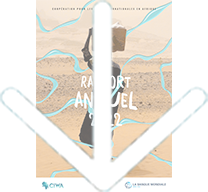
In the 2022 fiscal year (FY22), the Cooperation in International Waters in Africa (CIWA) worked to mitigate Africa’s immense needs. These formidable challenges only strengthen our resolve to help countries collaborate over transboundary waters to share costs and benefits of building resilience, to address drivers of fragility, conflict, and violence (FCV), and to foster green, resilient, and inclusive development (GRID) and recovery from the pandemic.
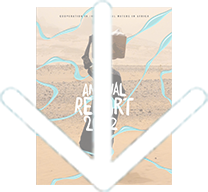

People who benefit from investments influenced by CIWA

Above data is cumulative since 2011

RESILIENCE
CIWA is supporting climate-resilient communities and playing a crucial role in planning for, and mitigating, climate-related shocks; supporting livelihoods; and sustaining health and economic development.
GENDER AND SOCIAL INCLUSION
In FY22, CIWA ramped up its work on GESI, with the overall strategy guided by CIWA’s GESI Framework. The framework represents a transformative approach that recognizes that countering deep-seated patriarchal norms that exclude women requires a shift from one-off, short-term interventions toward a harmonized and integrated approach that is sustained throughout the life of the project and beyond.
BIODIVERSITY
Supporting a range of biodiversity-related activities in Sub-Saharan Africa, CIWA conducted an assessment to better understand the linkages between program activities and biodiversity conservation. The assessment concluded that CIWA’s support of biodiversity-related activities provides both direct and indirect benefits to biodiversity conservation efforts.
FRAGILITY, CONFLICT, AND VIOLENCE
CIWA deepened its support to countries affected by FCV, increasing its footprint from 11 countries in FY21 to 17 in FY22—nearly all the 20 African countries classified as FCV. CIWA remains engaged in three priority FCV-affected regions—the Horn of Africa, the Sahel, and the Great Lakes. This included monitoring FCV-related events with an impact on transboundary water cooperation, strengthening resilience to climate change, improving water security, and making groundwater more accessible.
WATER DATA REVOLUTION
Improving the management of transboundary water resources and increasing resilience to hydrological extremes require understanding water resource dynamics at both basin and national levels. The new Water Data Revolution (WDR) technical cooperation takes a user-driven approach to identifying common needs and connects end-users with appropriate solutions, including remote sensing tools, satellite imagery, and custom data products.


As Africa’s challenges mount amid the global economic downturn, climate change intensifies, and countries become increasingly fragile, CIWA’s work in the year ahead is more important than ever.
We will continue our efforts to equip countries beset by these challenges with the knowledge, capacity, tools, and financial resources needed to build back better from economic fragility and the pandemic and to increase resilience to coming climate, food, energy, and health shocks.
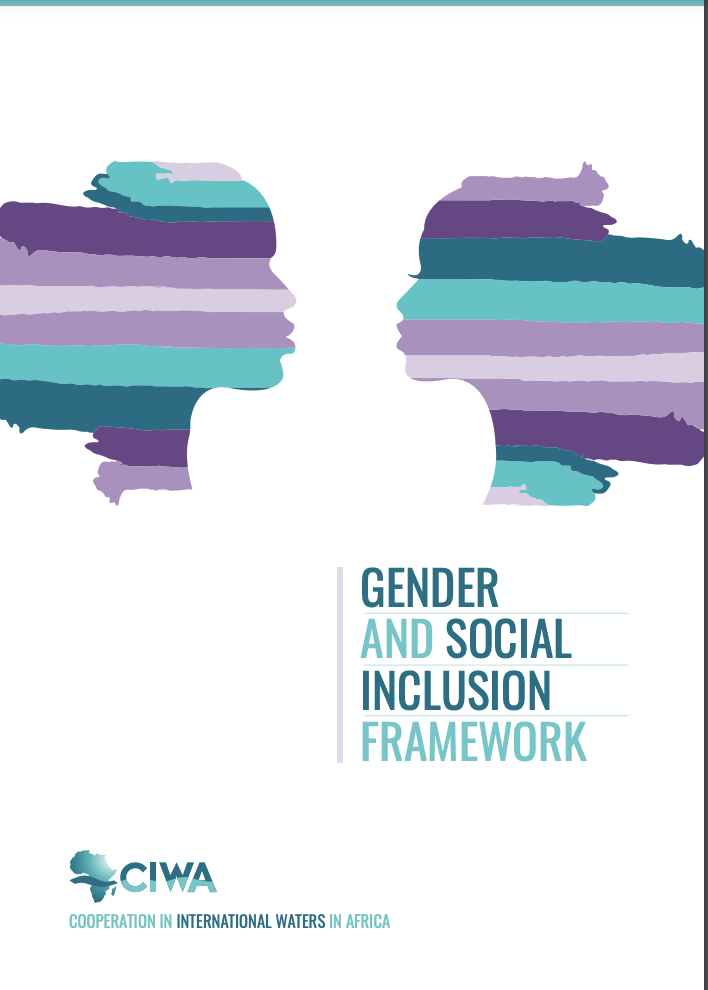 CIWA at 10
CIWA at 10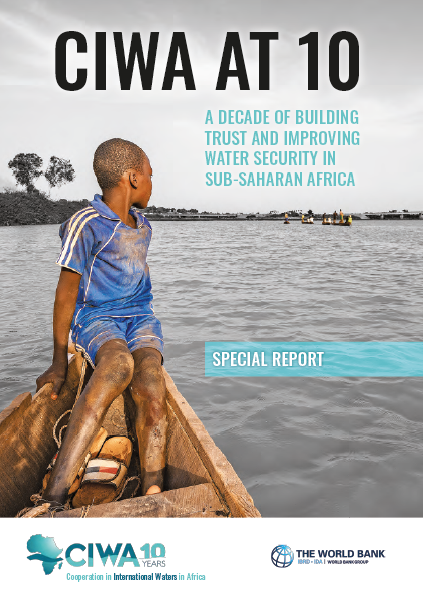 CIWA Bulletin
CIWA Bulletin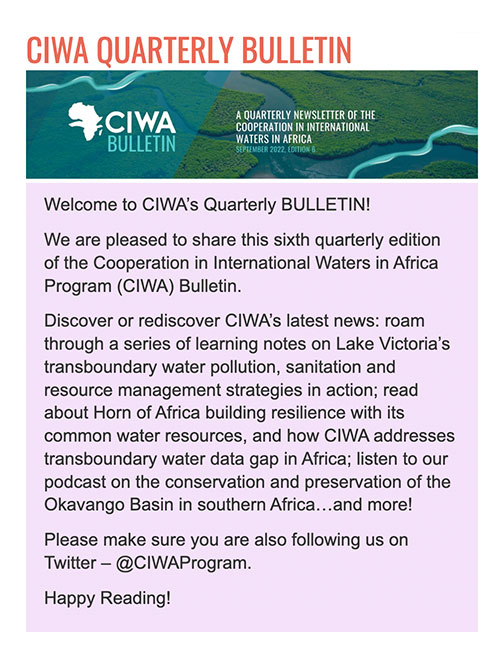 Drought Resilience Profile
Drought Resilience Profile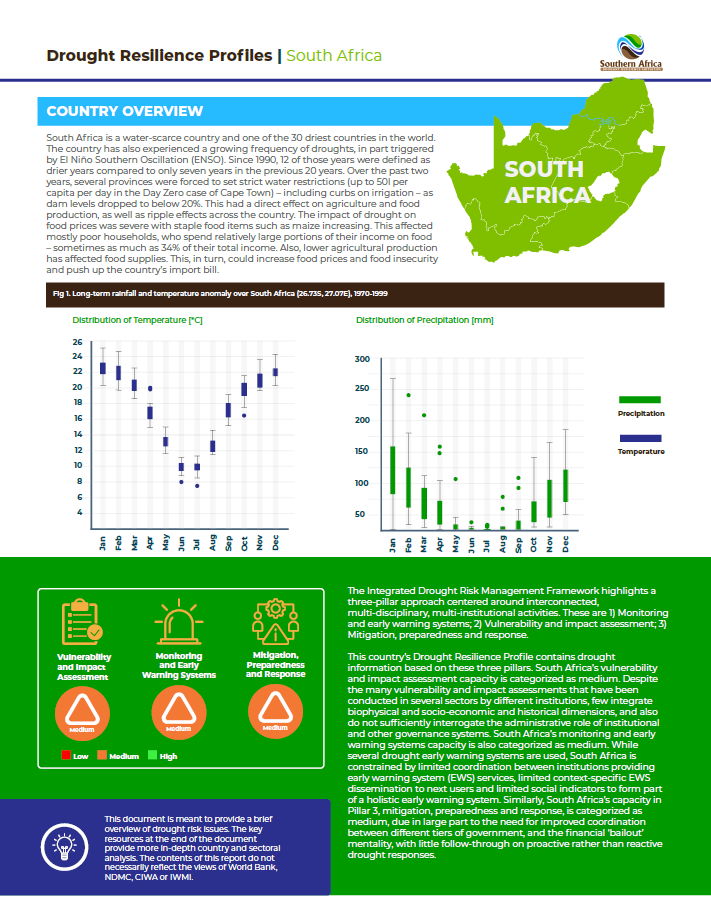 Improving Water Quality in Lake Victoria Basin
Improving Water Quality in Lake Victoria Basin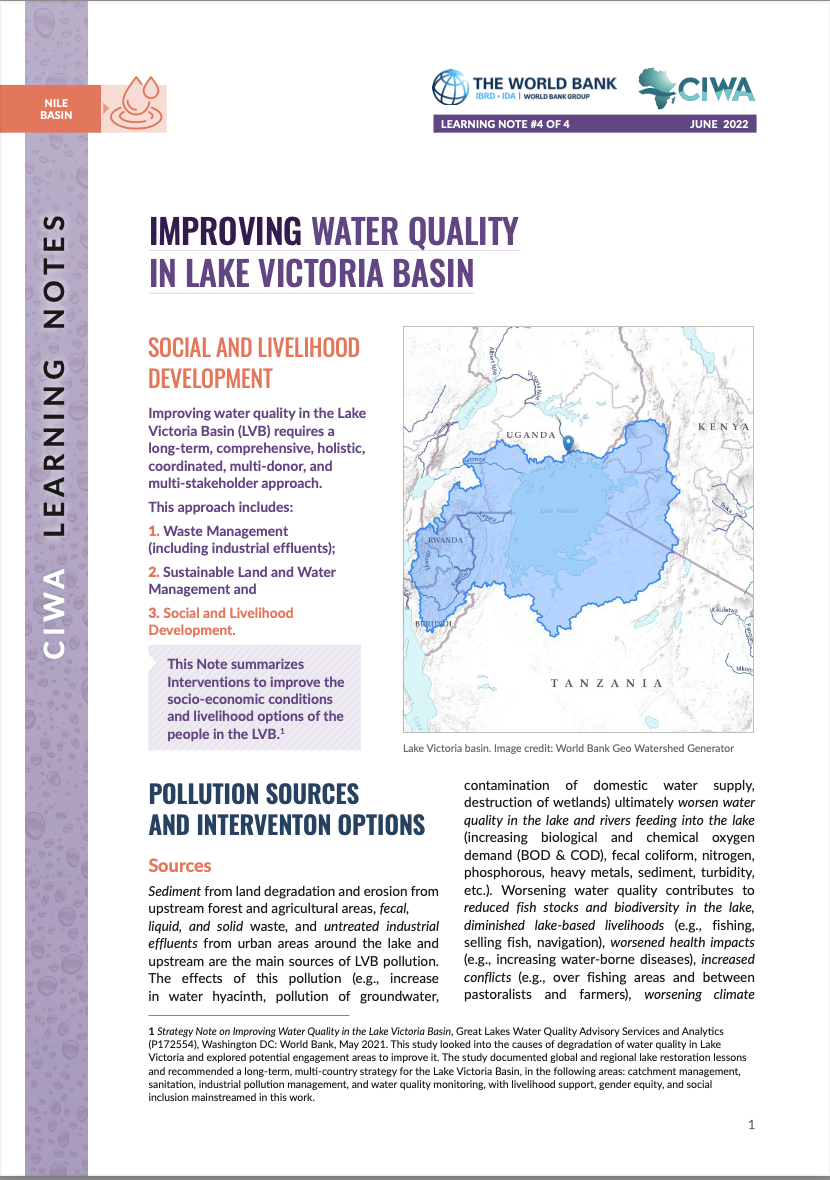 Gender Equality and Social Inclusion in Nile Basin Transboundary Water Resources Management and Development
Gender Equality and Social Inclusion in Nile Basin Transboundary Water Resources Management and Development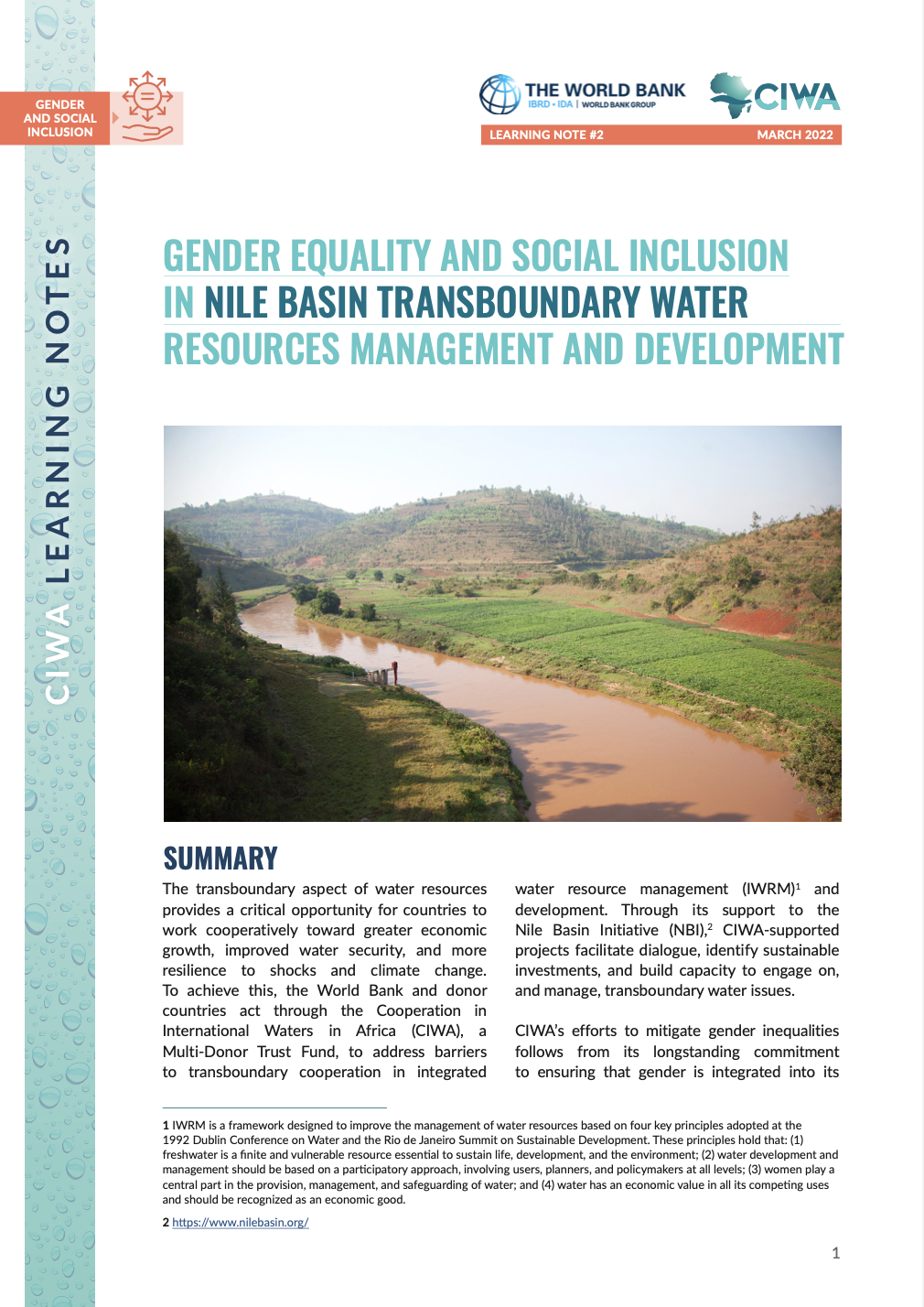
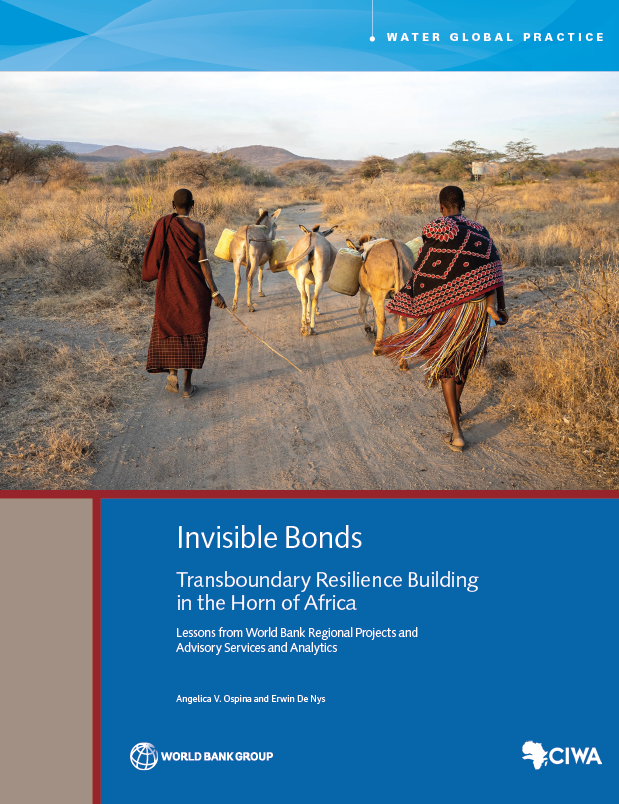 Ensuring Gender and Social Inclusion is Considered at the Project Concept Phase
Ensuring Gender and Social Inclusion is Considered at the Project Concept Phase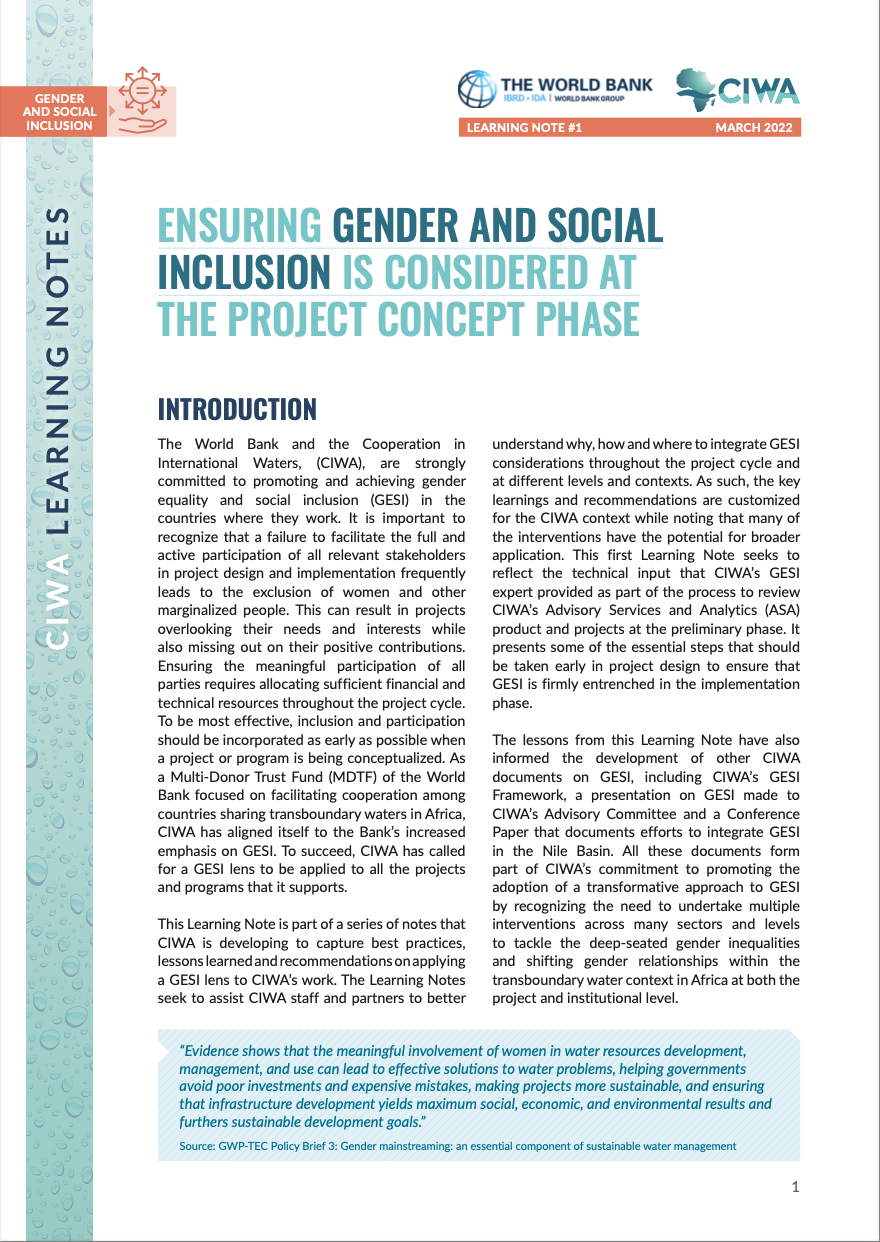 Strengthening Regional Water Security for Greater Resilience in the G5 Sahel
Strengthening Regional Water Security for Greater Resilience in the G5 Sahel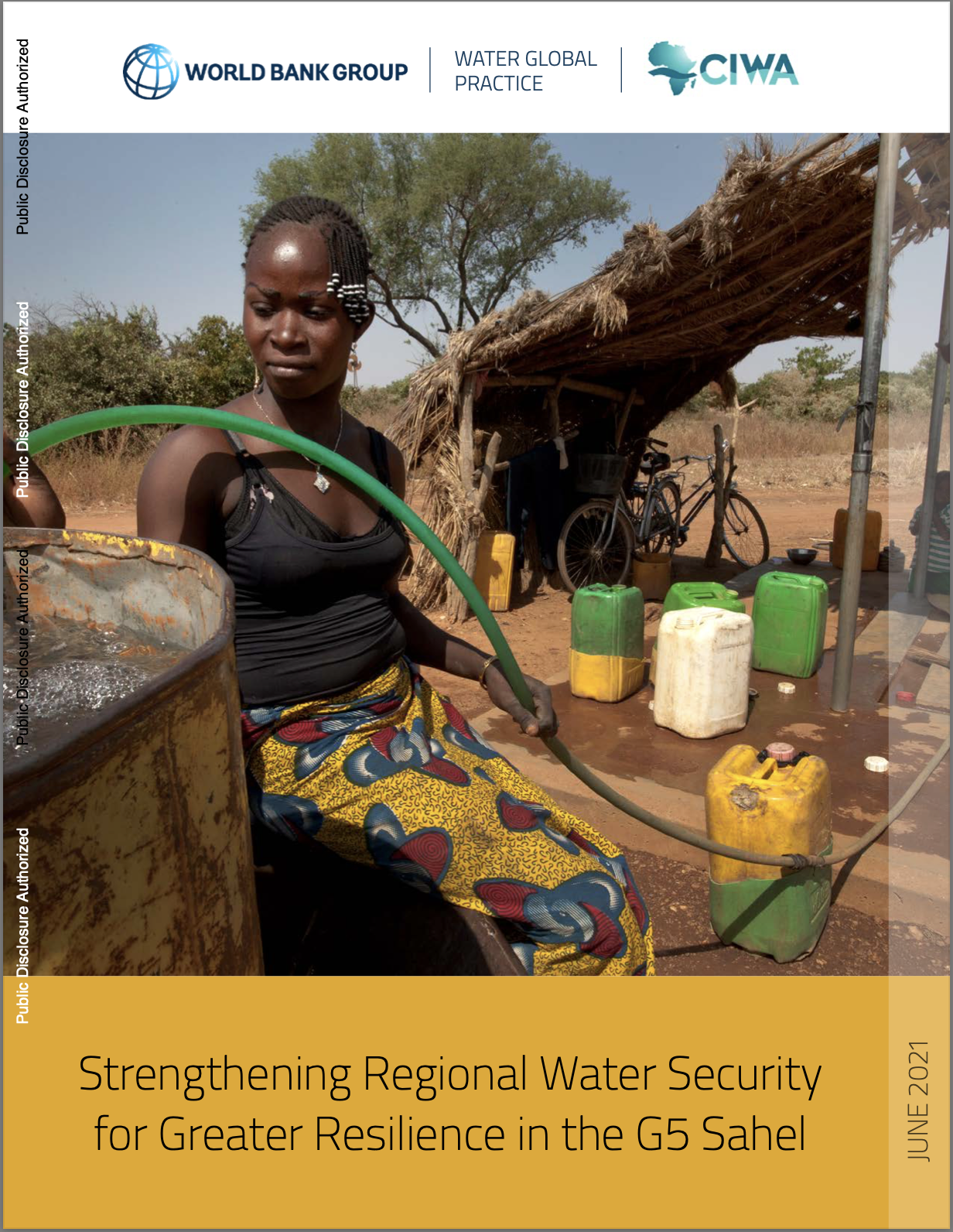 Water Cooperation in the Horn of Africa: Addressing Drivers of Conflict and Strengthening Resilience
Water Cooperation in the Horn of Africa: Addressing Drivers of Conflict and Strengthening Resilience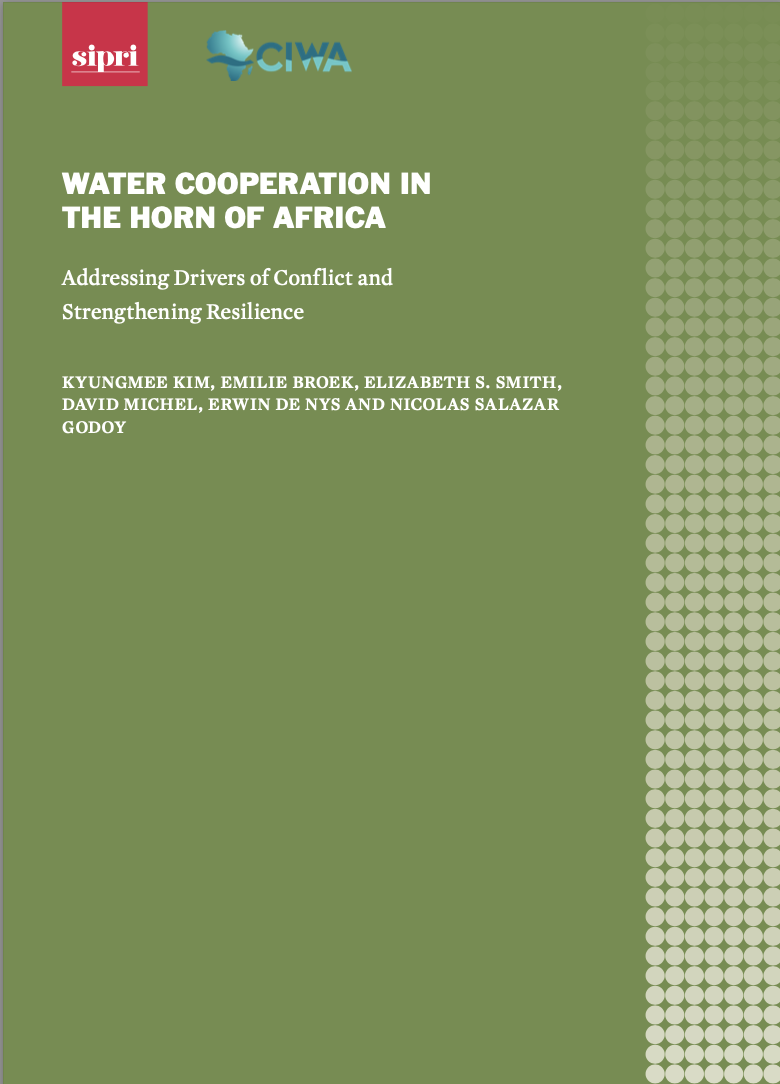 World Bank Engagement in Transboundary Waters in West Africa: Retrospective and Lessons Learned
World Bank Engagement in Transboundary Waters in West Africa: Retrospective and Lessons Learned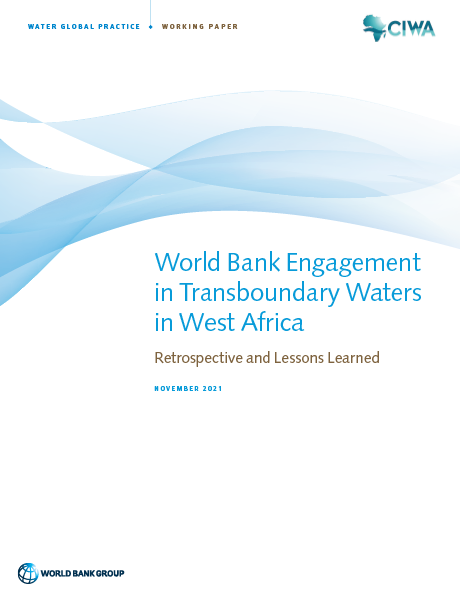 2021 Annual Report
2021 Annual Report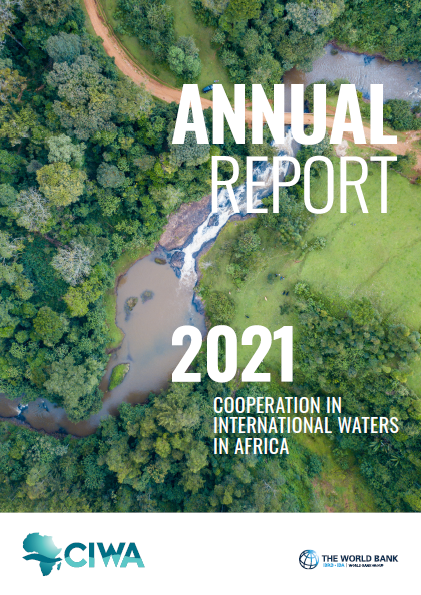

Africa’s 63 transboundary river basins account for 90 percent of the continent’s surface water. Many of the 48 countries sharing these basins knew that the economic, environmental, and political costs of not cooperating were unacceptably high.
They wanted to strengthen their information systems and exchange data, develop more institutional capacity to better manage water resources, and build more joint infrastructure that would be a win-win for everyone.
Together, they created the Cooperation in International Waters in Africa (CIWA) program, a multi-donor trust fund managed by the World Bank, which was launched in 2011.
CIWA would strive to foster cooperation, protect biodiversity, help countries beset by conflict and fragility, and spur climate resilience. It would achieve this by advancing its three pillars: information—to understand risks, make better decisions, and monitor compliance; institutions—to build trust, coordinate planning, and manage shared resources, and investments—to manage watersheds, develop groundwater, and build storage. Ten years later, despite a multitude of political and economic shocks, instability, climate disasters, and health crises including a pandemic, Sub-Saharan countries are more committed than ever to cooperating around water resources.


CIWA, a multi-donor partnership, continues to support riparian governments in Sub-Saharan Africa and their path toward more sustainable, data-driven, community-focused, and collaborative management of transboundary waters.
© | Cooperation in International Waters in Africa | Water Global Practice | The World Bank Group, 1818 H Street, NW Washington, DC, USA | ciwaprogram@worldbank.org
Privacy policy | Photographs: CIWA/ World Bank / Shutterstock-



